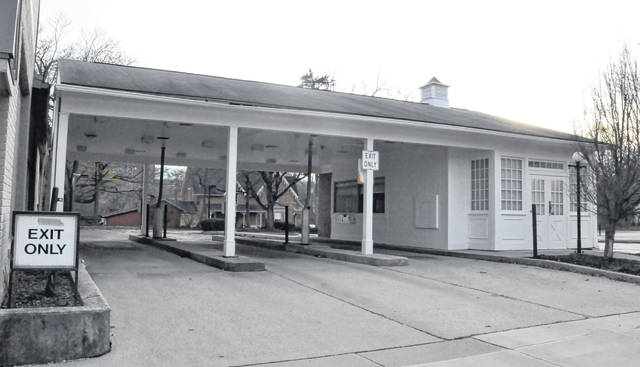
First Citizens National Bank is planning to open a new branch in Delaware, its first in the city, the bank announced Sunday in a press release. On Wednesday, representatives of the bank met with the City of Delaware Historic Preservation Commission (HPC) to discuss the bank’s site plans.
Mark Johnson, president and CEO of First Citizens National Bank, said in a release, “We have been serving customers in Delaware for a number of years from our Powell and Marion locations, but with banks in the Delaware market consolidating and selling to out-of-state owners who are drastically raising fees, we felt the time was right for a true community bank to step in to serve the community.”
The bank is proposing to construct a 2,200-square-foot addition on the west side of the existing three-lane, drive-up bank located at 33 W. William St., which has been vacant for two years. While awaiting the completion of the addition, the existing building will be upgraded to serve as a temporary full-service branch and open in March.
First Citizens entered into a long-term lease arrangement with property owner Hiram Lodge No. 18 F & AM and expects the new addition to be completed by the end of 2021, pending approval from HPC and, eventually, Delaware City Council.
The proposed addition is expected to feature a limestone and red brick exterior to replicate the existing building. Because the site exists within the transitional historical downtown district, city staff has recommended potentially rezoning the property from B-3 Community Business District to B-2 Central Business District “to achieve a better fit with the overall context of its location, according to City Development Planner Dianne Guenther.
Access to the bank will remain as it currently exists, with customers enter and exiting the site via Franklin Street. Those using the drive-thru lanes will exit onto William Street.
Commissioner Mark Smiles, one of two new commissioners to join HPC along with Mark Reed, said the proposed design of the building looks “too modern” and “doesn’t quite fit in” with other buildings in the district.
“To me, the limestone (water) table does that, and if the brick went all the way further down and it looked like it had a limestone foundation, which a lot of the older buildings do, I would think that would look more appropriate,” Smiles said.
Smiles added the blocked-in windows on the south-facing exterior look like an “eyesore” for a newly-constructed building, and he proposed, perhaps, a walk-up ATM in their place.
HPC Chairman Joe Coleman said there are examples of the blocked-in windows around town, and they’re not “incompatible” with the rest of the historic district.
Zach Price, of Triad Architects, which is representing the bank on the project, said the blocked-in windows on the exterior will be where the safe, safety deposit boxes, and restrooms are located inside the building, which isn’t conducive to regular windows. However, he said they would be open to other options than windows if that were the wish of the HPC.
“I like the design,” Commissioner Sherry Riviera said. “I particularly like the existing roof on the plans. I think it blends well with going down the street towards the Masonic lodge and what’s across the street.”
Riviera went on to say she liked the limestone water table on the building’s exterior, saying it gives the building “some stability and some heft to it.”
Reed pointed out the water table goes nicely with the line going across at the same level on the Masonic temple. “I think in terms of continuing that line from the existing building and then across, the rendering looks like it may create a nice sightline with the Masonic temple as well,” he stated.
Lisa Keller, who serves as the city council representative on HPC, said the commission is going to need to be flexible in the months to come, not just with the proposal from First Citizens, keeping in mind the economic hardships Delaware’s businesses will continue to face in light of the pandemic.
Wednesday’s HPC discussion served as an informal review of the bank’s proposal, and the bank will need to come back to the commission for a formal review in order to receive a Certificate of Appropriateness for the plan.

